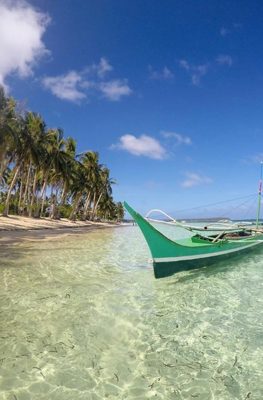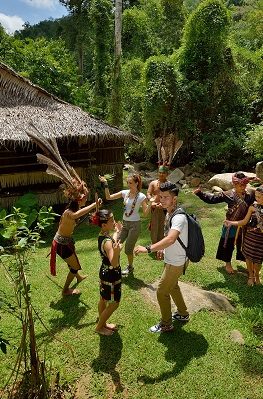Published on May 20, 2014
Manado, capital city of North Sulawesi, was designated “Coral Reef Capital of the World” by the World Coral Reef Conference (WCRC) that took place in this city from 14th to 17th May 2014. This also marked the 2nd time that Manado was chosen as host city, having been the venue for the first World Coral Reef Conference 2009.
The conference is a forum of the Coral Triangle Initiative on Coral Reefs, Fisheries and Food Security (CTI-CFF), a partnership of six countries formed in 2007 that comprises: Indonesia, the Philippines, Malaysia, Papua New Guinea, the Solomon Islands, and Timor Leste.
The conference also established Manado as site of the Permanent Secretariat of CTI-CFF. Built on an area of 1.5 hectares and located at the Grand Kawanua International City, Manado, the permanent secretariat of CTI-CFF (called the CTI Center) is expected to become a regional center for the studies of coral reef preservation efforts.
The Coral Reef triangle is the large marine region in the Asia-Pacific that embraces the seas of the above countries, that are rich in coral reefs and colorful underwater life.
It encompasses a total area of 75 thousand square kilometers, 51 thousand square kilometers of which are located in Indonesian waters that include the Bunaken National Park in Manado (North Sulawesi), Taka Bonerate in South Sulawesi, Wakatobi in Southeast Sulawesi,Togean in Central Sulawesi, Derawan Islands in East Kalimantan, Banda and Ambon in Maluku, Raja Ampat in West Papua, as well as Komodo Island and Riung Islands in East Nusatenggara.
Home to over 70 species of coral reefs and more than 91 species of fish, the Bunaken National Park in Manado consists of several small islands including Manado Tua, Bunaken, Siladen, and Nani.The waters around these islands are recognized as a divers’ paradise which ispunctuated by trenches that can reach as deep as 1,200 meters. Manado is located in a strategic area, which lies at the heart of the Coral Triangle region, and is home to more than 76 percent of all known coral species, 53 percent of the world’s coral reefs, and over 37 percent of coral reef fish species.
To protect precious marine life, Indonesia has lately also banned the catch and sale of manta rays, making the Indonesian waters the largest manta conservation area in the world.






